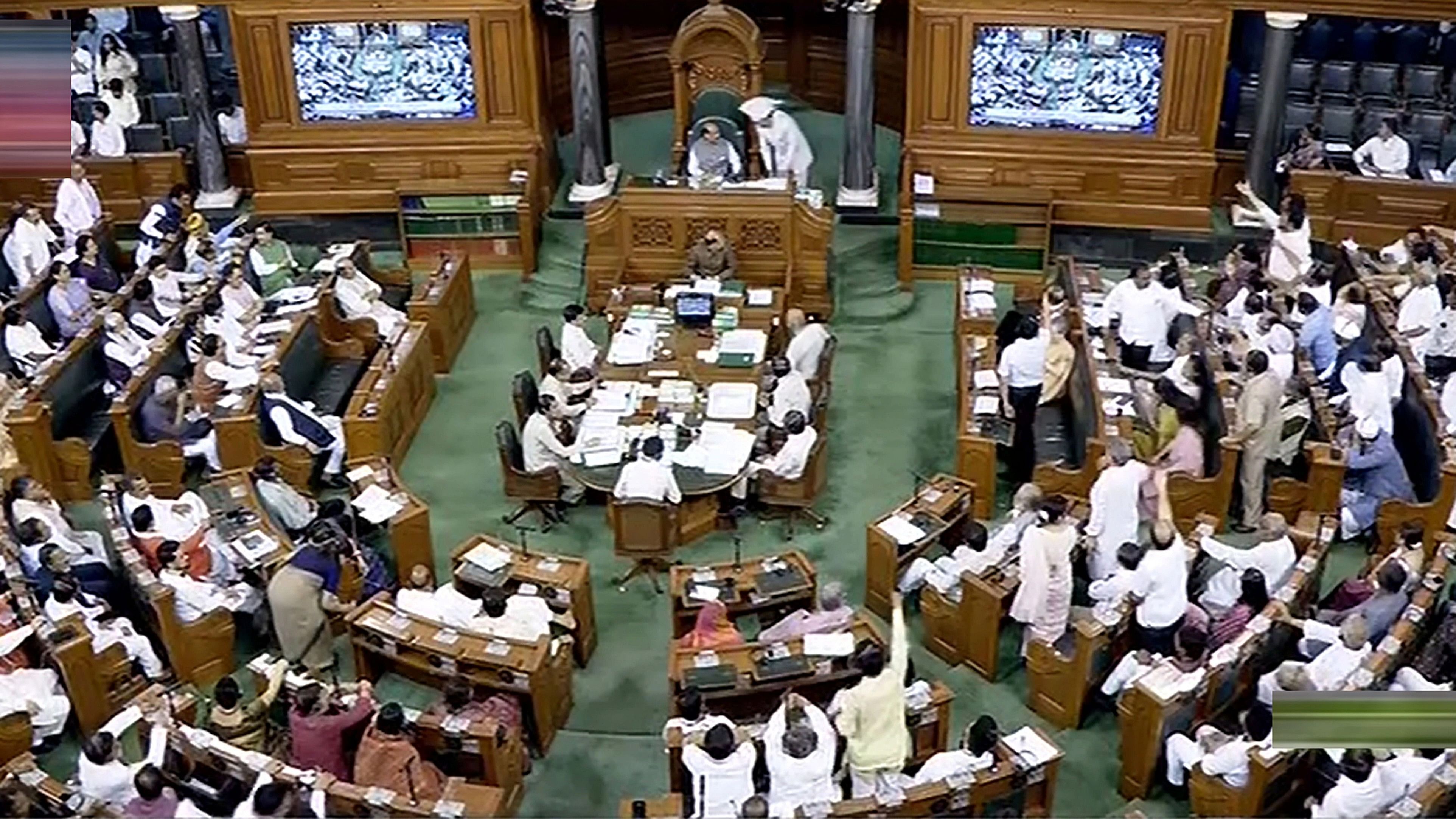
MPs during a debate in Lok Sabha, during the Monsoon session of Parliament.
Credit: PTI Photo
The National Capital Territory of Delhi (Amendment) Bill, passed by parliament, has adverse implications that go beyond Delhi and the immediate objectives of the legislation. The bill was brought in to replace an ordinance promulgated on May 19, days after the Supreme Court ruled that the elected government of Delhi will have powers over all services except those pertaining to police, public order, and land.
The ordinance, and now the bill, have reinstated a wrong that the Supreme Court had corrected. The bill makes it possible for central government-appointed bureaucrats to overrule the elected Chief Minister of Delhi, and makes the Lt-Governor the real repository of power. All appointments pertaining to services will be made by a committee comprising the Chief Minister, the Chief Secretary and Principal Home Secretary, as per the bill. By putting the bureaucrats on par with the elected Chief Minister, it undermines electoral and parliamentary democracy and the federal spirit of the Constitution, all of which are part of the Basic Structure of the Constitution.
The bill also undermines the Supreme Court verdict which had upheld the power of the elected government and underlined the importance of the federal principle in the working of the country’s democratic system. The government, led by Union Home Minister Amit Shah, defended the bill and said that it was meant “to ensure corruption-free, pro-people governance in Delhi.” This is a political objective, one for which the people of Delhi rejected the BJP and voted in the AAP.
The hurried ordinance and the bill passed show the Modi government’s keenness to nullify the people’s mandate in order to win its political war against the AAP. The government has claimed that it has the power to draft laws for all Union Territories and that Delhi is no exception. Its current position contradicts the views expressed by the BJP in the past. The party had always demanded full statehood for Delhi and more powers for its government.
The Opposition’s charge that the government was using its majority to neutralise the Supreme Court judgement is valid. The ordinance is under the top court’s consideration. The Constitution Bench which is examining it will now consider its successor legislation.
Most Opposition parties were united against the bill as they consider it to be yet another bid by the Modi government to rob the states of their powers under the Constitution. That is why it has relevance that goes beyond Delhi. It is unfortunate that the BJD and YSR Congress, which helped the BJP pass the bill in the Rajya Sabha, failed to read the harm that the bill can do to their own cause in the long term.